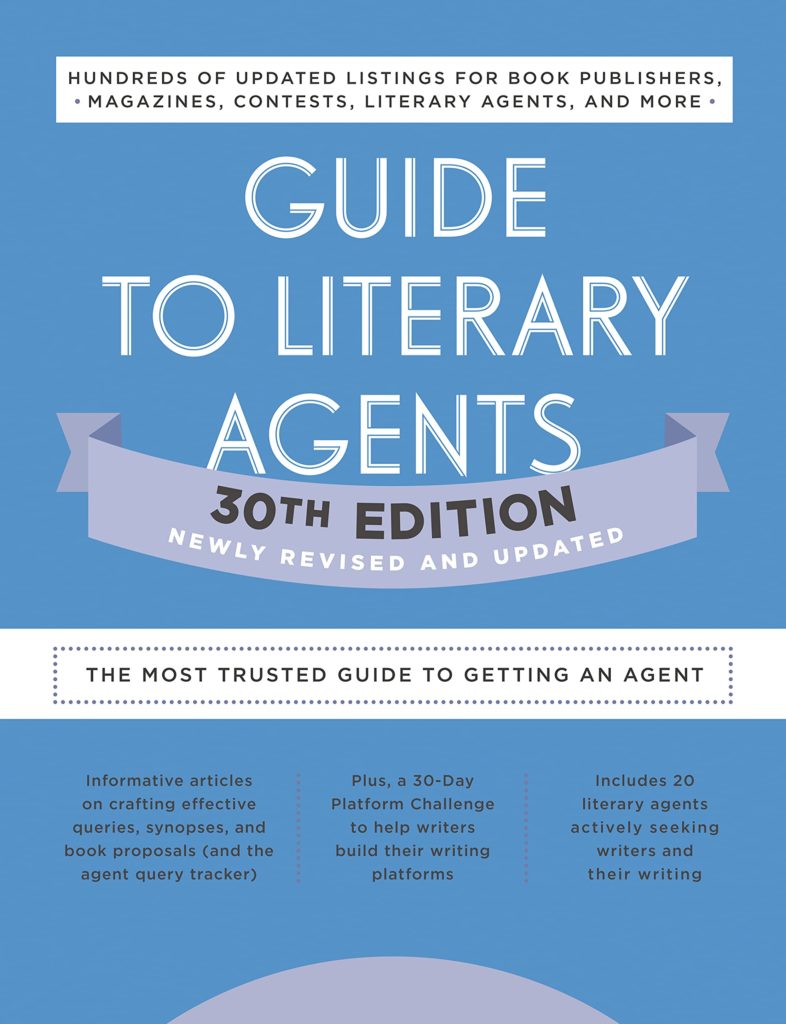Literary agents are often regarded as the gatekeepers to book publishing, and it’s quite true: it’s unlikely that you’ll secure a traditional book deal at a respected publisher without one. Agents are there to represent you at the most critical points in your book deal – from the submission process, to fighting to retain foreign rights, to launch day, and beyond. It’s no wonder then that literary agents are revered among writing communities (and are practically celebrities on writer Twitter, but that’s another story).
Choosing a literary agent for your entire writing career is a huge decision – and one not to be taken lightly. This is the person who will be representing your writing career professionally, who will be fighting your corner with editors and publishing houses. They should be your biggest advocates.
Finding a literary agent for your entire writing career, not just for right now
But what writers forget to consider is that the writer-agent relationship is not one-sided; it is a partnership. Agents are just people, like you, and they need writers to make a living (agents will take an industry-standard 15% cut once they make a sale). It is in a literary agent’s interests to represent you: the more you make, the more they make. It is a business partnership. And hopefully, a long and fruitful one.
When I was querying for the first time, I got so swept up in the goal of getting an agent, that I forgot this crucial fact. I was so humbled that an agent would go for little old me, writer, that I forgot to interrogate the relationship. This is quite unlike me – I am a strategic businesswoman in my day job – but there is something romantic about writing, the art of it, plus of course, my novel was my baby! Who would ever want to hurt my baby? Surely the agent cared as strongly for it as I did? Isn’t that why they wanted to represent me? The pursuit of art?
Well, no. Of course, an agent needs to love what you write, since they should be passionately trying to sell it. But they also have made a career in sniffing a successful sale. And, let’s be real: agents are flatterers. That is literally their job: to schmooze, to sell. I’m not saying they aren’t lovely people, or that you can’t form a friendly relationship with your agent, but it can be easy to forget that what is a baby for you, is a business for them. It is our job, not as writers, but as businesspeople, to see through the flattery and to ask the questions that really matter when choosing a literary agent:
1. Is the agent’s communication style compatible with mine?
Whether we writers like it or not, the publishing industry moves at the state of molasses. As an efficient, organized, get-stuff-done kinda gal, I find this most infuriating. Unfortunately, this also extends to agents. Agents are very busy people, and they effectively work for free until they sell your book. Once the dust has settled and you have signed that agency contract, they may take an inordinately long time to come back to your email jam-packed with hundreds of questions. They might prefer to chat on the phone. They might leave you hanging for months on end while they pitch your book, or they might forward you any editor feedback as it comes in. No two agents are alike, so think about what you can live with, and what is an unacceptable level of communication, and be sure to clarify this before you sign anything. For me, expectation setting was the most important: knowing that it might take a long time for my agent to come back to me, but being told why. I also enjoy a straight-shooter: no fluff.
2. Does the agent represent similar books in my genre?
This is not a deal breaker, but it is a huge help. Check out Publishers Marketplace to see other books that they’ve represented and sold. If they’re in the same genre that you’re writing in, then it’s likely they know the right editors to go to, the right imprints, and have the right track record to really make your book land.
3. Does the agent share my vision?
Do you see your manuscript turning into a New York Times Bestseller, or are you more down with an indie publisher? Do you agree with your agent over where you see your book sitting on the shelves? Are you hoping for local publicity, or world domination? The most important thing when it comes to choosing a literary agent for your entire writing career is to make sure that the agent supports the story you want to tell, and how to disseminate that to the world. Publishing comes in all shapes and sizes, and your agent should be the biggest cheerleader for your shared vision, whatever that looks like.
4. Does the agent want me, or the sale?
It felt like I had been querying forever (even though it was a few short weeks), that when the offer of representation came in (in my case, I had multiple), I was so overwhelmed by the whole experience that I made a snap decision. Now I look back on it, the agent I chose came in late to the party, only after other offers were on the table. Really, you want an agent who wants both you – talented writer! – and the sale. You want someone who wants to stick it out, through thick and thin. Because believe me, parting ways further down the line is like breaking up with someone: unpleasant.
5. Will the agent be okay with me branching out into other genres?
Some agents only work in certain genres. Be sure to research this, and ask them. Remember, a literary agent for your entire writing career means an agent for life, not just for Christmas. What you write and they like now might change in the future. And that’s okay. Just ensure you discuss it early on so there are no surprises. Manuscript Wish List, or MSWL as it is fondly known, is a great resource for learning agents’ tastes.
6. What are the agent’s other authors saying about them?
It’s super important that before you sign with a literary agent, you chat to their other authors. Of course, the agent may have already prepped them to say nice things, but you will inevitably get a more accurate picture from writers who were once in the same boat as you, and not just an agent who wants to sign you as their next shiny thing. Why did they choose to work with the agent? What do they like about them? What frustrates them? How do they communicate? How long have they been with the agent? Really drill down into the dirt here, and the truth will out.
7. Is the agent on social media?
There are many agents who are on social media, in particular, Twitter. These agents have huge followings from aspiring writers who want to “get close” to the publishing gatekeepers. However, if an agent is tweeting every hour, you have to wonder if it is a) an editorial assistant doing this on their behalf (weird), or b) they have too much time on their hands. Social media can be an incredibly useful writerly tool, in moderation. Same for agents – I would want an agent who has some digital savviness i.e. a clean, modern website, but who isn’t living on Twitter or Instagram.
8. How involved does the agent want to be?
Some agents consider themselves to be “editorial agents”, acting more in the vein of editors, writing long editorial letters, and suggesting multiple changes to your manuscript. Some take a completely hands-off approach. Again, my advice would be to find someone just in the middle. You should be open to their suggestions, without them re-writing your entire manuscript.
9. Is the agent’s contract legitimate?
NEVER pay reading fees. Just don’t. If you see any “extras” in the contract, back out now. Similarly, if you see a cut above the standard 15%, run (this doesn’t apply to foreign rights, which can vary). The website Predators and Editors has compiled a useful list of agents to avoid, while the excellent Print Run Podcast (highly recommend this for all aspects of the writerly life) fondly refers to them as “shmagents”. Avoid these bad actors by thoroughly reading through your contract before signing. Oh, and always sign a contract! If an agent offers to represent you without one, then you have no recourse should anything go wrong, which it surely will. It doesn’t hurt to have an attorney look over your contract.
10. And finally, and perhaps most importantly for choosing a literary agent for your entire writing career: Are they in it for the long-haul?
A trustworthy, persistent, great communicator, and salesperson might be what you want for your novel. But this is potentially one of many in an illustrious writing career. Ask your agent: are you with me for the long-haul? Are you going to fight my corner just now, or in the future? Remember: you’re choosing a literary agent for your entire writing career. It can be hard to think long-term, especially when novel writing can take years at a time, but this isn’t just about one manuscript, or book, this is about you. The writer. And finding someone you can work with takes time, effort, and energy. That’s why it’s better to forge a long-term relationship with your literary agent. Your future self – the published, successful author – will thank you. And so will your agent.
Recommended reading
Here at Aspiring Author, we love recommending bestsellers and fawning over hot new releases. On this real time recommended reading list, you will find a list of top rated books on the publishing industry, craft, and other books to help you elevate your writing career.










